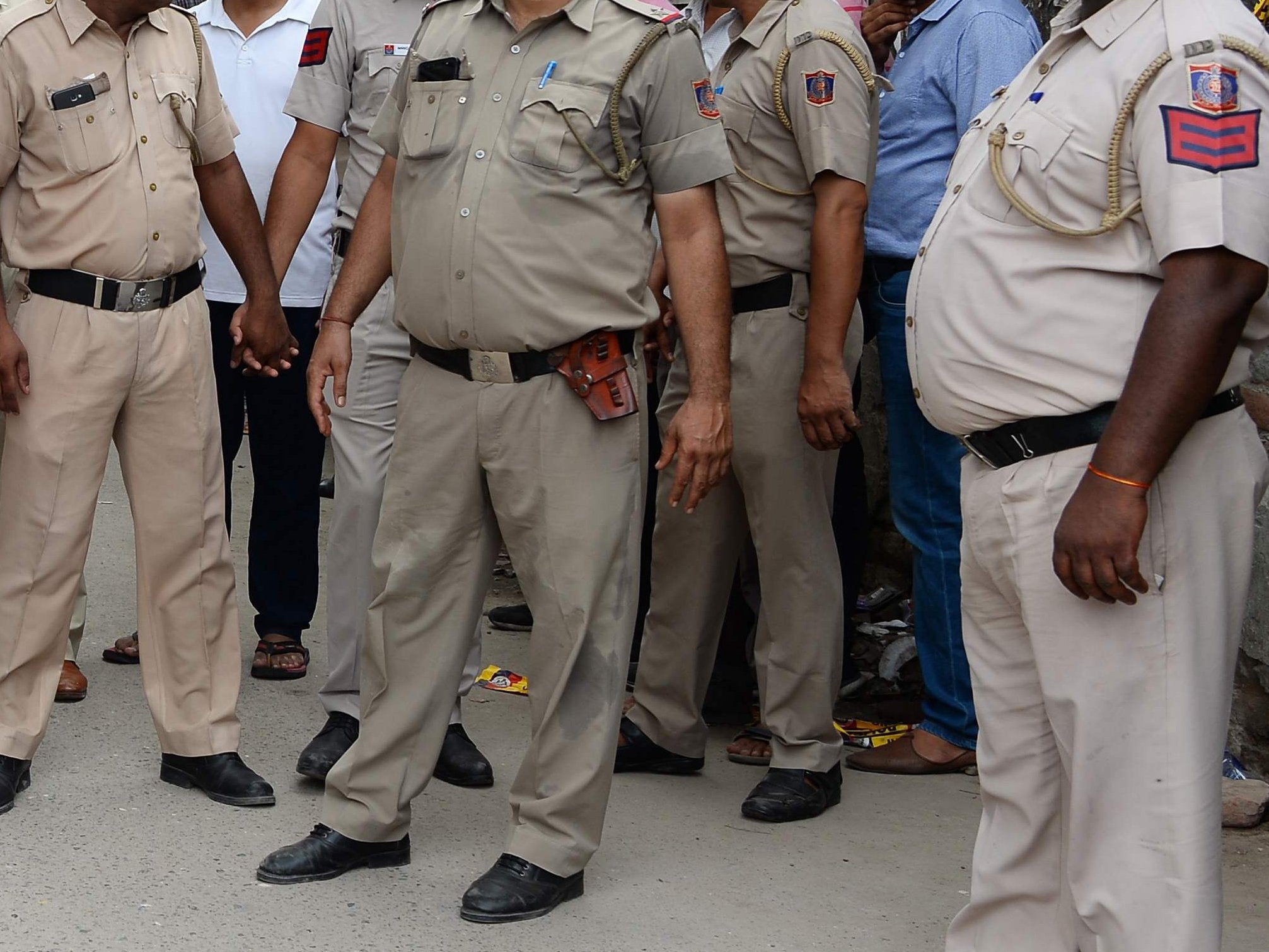Indian man from former 'untouchable' caste beaten by police after reporting wife's gang-rape
Case is indicative of discriminatory treatment Dalits still receive in India, says rights activist

Your support helps us to tell the story
From reproductive rights to climate change to Big Tech, The Independent is on the ground when the story is developing. Whether it's investigating the financials of Elon Musk's pro-Trump PAC or producing our latest documentary, 'The A Word', which shines a light on the American women fighting for reproductive rights, we know how important it is to parse out the facts from the messaging.
At such a critical moment in US history, we need reporters on the ground. Your donation allows us to keep sending journalists to speak to both sides of the story.
The Independent is trusted by Americans across the entire political spectrum. And unlike many other quality news outlets, we choose not to lock Americans out of our reporting and analysis with paywalls. We believe quality journalism should be available to everyone, paid for by those who can afford it.
Your support makes all the difference.Three police officers have been suspended in India for assaulting and detaining a 41-year-old man who approached them for help after his wife was kidnapped and allegedly gang-raped.
The man, a member of the Dalit (formerly Untouchable) community, was travelling on a motorbike with his 38-year-old wife outside the city of Mainpuri in Uttar Pradesh state when they were attacked by three men in a car, according to police.
The attackers used their car to block off the motorbike then sprayed chilli powder in the husband’s eyes, smashing the bike before driving off with the wife in the back seat, senior local police officer Shiv Singh Chauhan told the Indian Express.
“The man dragged his motorcycle for around 4 km and reached the Bichhwan area of Mainpuri district. With the help of a passerby, he called the police control room and informed them about the incident,” Chauhan said.
Yet after the man led officers to the scene of the incident and described the ordeal, the police team instead accused him of wrongdoing and took him back to their station for questioning.
During the interrogation, officers beat the husband, said Ajai Shankar Rai, the superintendent of Mainpuri Police.
“Policemen assaulted him during questioning,” Rai said. “A medical examination shows injuries on his back and legs.”
The man’s wife turned up at the police station around five hours after the kidnapping had began, saying the attackers dumped her on the road and that she made her way home only to hear from family members that her husband was being detained.
It was only then that police released the man, and issued an incident report relating to the alleged assault, kidnapping and gang-rape by three unknown assailants.
Rai said he has launched an inquiry into the incident and that the officers, a senior member of staff and two constables, have been suspended.
But the case is indicative of the discriminatory treatment Dalits still receive at the hands of authorities and upper castes across the country, said Dr V A Ramesh Nathan, general secretary of the National Dalit Movement For Justice (NDMJ).
Despite the concept of “Untouchability” being outlawed under India’s 1949 constitution, there are 40,000 cases of hate crimes against Dalits currently pending investigation, the national commission for “scheduled” castes - an umbrella term that includes Dalits and other lower caste groups - said last month.
Dr Ramesh Nathan told The Independent that despite strong laws making caste-based discrimination a serious criminal offence, “there are so many incidents happening every day”.
“This particular case in Uttar Pradesh is similar to many, because it is normal when our people go to police for them to suspect the victim first. This does not happen to non-Dalits, since they are socially, economically and politically more powerful.”
Police, he said, were able to act with “impunity” because of a low prospect of serious punishment and the lack of political will to really address the issue of caste divides in the country.
Casteism, Dr Ramesh Nathan said, should be treated like a disease afflicting the nation. “There are many examples where, through effective campaign action, India has eradicated or drastically reduced things like polio, cholera, malaria,” he said.
“If the states take measures to create awareness among non-Dalits and if stringent actions are taken in every case, this incident will not be repeated.”
Join our commenting forum
Join thought-provoking conversations, follow other Independent readers and see their replies
0Comments